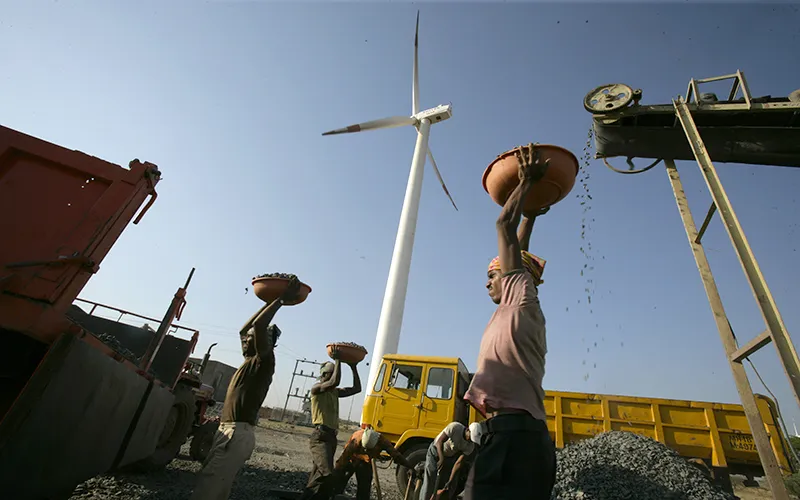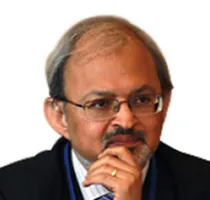< class="text11verdana">
Yes, and let dealers choose suppliers
Anyone driving to the hills on the mandatory pilgrimage trail cannot but notice the ubiquitous drum or two in front of roadside stalls — its presence advertising fuels in a way that no pure-for-sure campaign can match. In essence, while we debate the Rs 2,000-crore investment limit, huge unserviced swathes of rural India get by on an unregulated and unsafe grey market they have learnt they cannot survive without.
Move beyond mofussil India and these ‘illegal’ roadside vends are ample proof of the structural changes in fuel retailing services badly needed to offer the customer access to his basic everyday energy needs. The advantages of boosting competition to provide value in terms of quality and quantity are only second.
The few private companies that had been lured into making the mandatory hurdle investments captured over 15% of the market in less than a year. Given this, petro price controls reintroduced in 2004 effectively ensured that product retailing remained the exclusive fiefdom of the powerful public sector behemoths. With subsidies on petro products, under some rather warped logic, reserved exclusively for state-owned companies, both price controls and the Rs 2,000-crore investment limit have worked in tandem to restrict the entry of other players in the market.
For all the hand-wringing over them, the elusive petro price reforms are only a small part of the picture. A truly open retailing policy needs to ensure that retail outlets are free to choose the source, i.e., supplier company. The oil marketing companies’ stranglehold on dealers by way of mandatory supply linkages should be removed for adealership that is, say, five years old. In this way, a whole new clutch of wholesalers, jobbers, independents, etc, can emerge to exploit arbitrages in sourcing and opportunities in optimising supply-chain costs that will create a truly competitive environment. Needless to say, this will also ‘magically’ shrink PSUs’ under-recovery figures and will be in the best interests of consumers rather than oil companies.
< class="heading12boldGeorgia">An open market is a distant dream
< class="text11verdana">T N R Rao (Former Petroleum Secretary)
THE mature economies have a large number of independent fuel retailing outlets that give consumers quality and choice of fuel at competitive prices as well as world-class auto services. Much before private players were allowed, Shell was permitted in early 1990s to upgrade select BPCL outlets with a new layout, modern equipment and convenience stores. This was quickly copied by other PSUs giving their outlets swank look with stores, conveniences, ATMs, etc. This also exposed users to higher standards of service. In fact, in countries like the UK, 60% revenues from such outlets are from non-fuel sales. Logically, therefore, supermarts added retail outlets and, for some time, this trend was a matter of concern for oil companies but the consumer ultimately benefited.
In India, the crying need is to eliminate high adulteration, misdirected subsidies and the inefficiencies of retention pricing embedded in the PSU fuel prices. This is possible only through real competition with multiple operators. Even small countries such as the Philippines, Thailand, etc, have more than a dozen players in the fuel market. Any one should be able to open a petrol pump here just like he can start an airline.
The key to facilitate this is to remove the high entry barriers, surreptitiously inserted in former PM Atal Bihari Vajpayee?s Hydrocarbon Vision, following Indian corporates? fears that deep-pocketed MNCs might pose a threat to them. Both the Expenditure Finance Committee of the NDA and the Integrated Energy Policy report of the UPA reiterated the need to remove entry barriers. But, as usual, there has been no action.
But a removal of entry barriers is not enough. Equally-important is enabling access to critical infrastructure such as port terminals, major storage hubs, product pipelines etc. Such access should be non-discriminatory, ensured by an independent regulator. Over a period of time, similar infrastructure will come up in private and joint sector, as is demonstrated by the parallel marketing of LPG introduced in the early 1990s. But it is doubtful if our closed fuel retailing market, zealously guarded by the domestic corporates and the PSU patronage-wielding political class, will ever be opened up.
Courtesy: Economic Times, July 14, 2010.
The views expressed above belong to the author(s). ORF research and analyses now available on Telegram! Click here to access our curated content — blogs, longforms and interviews.

